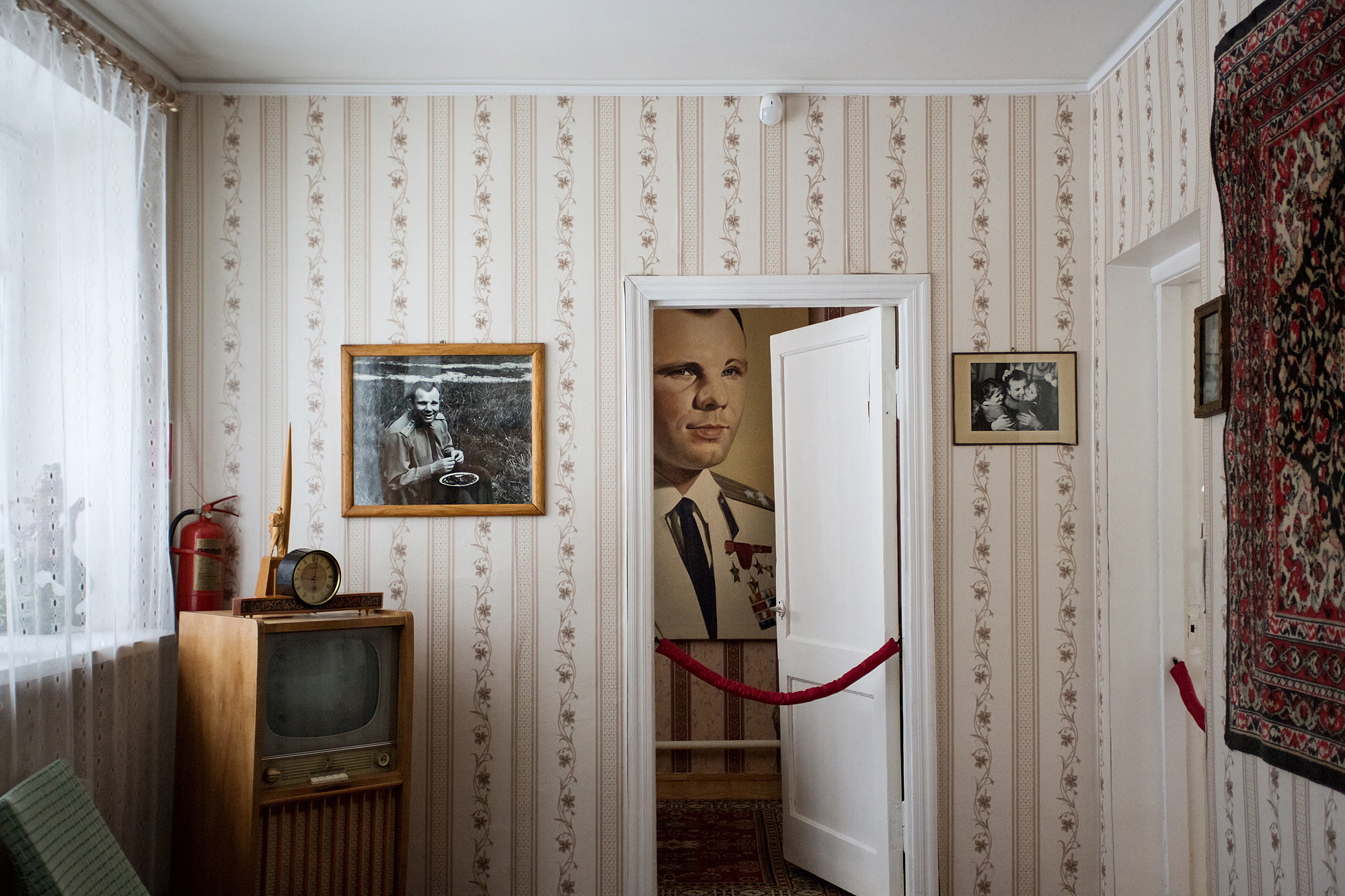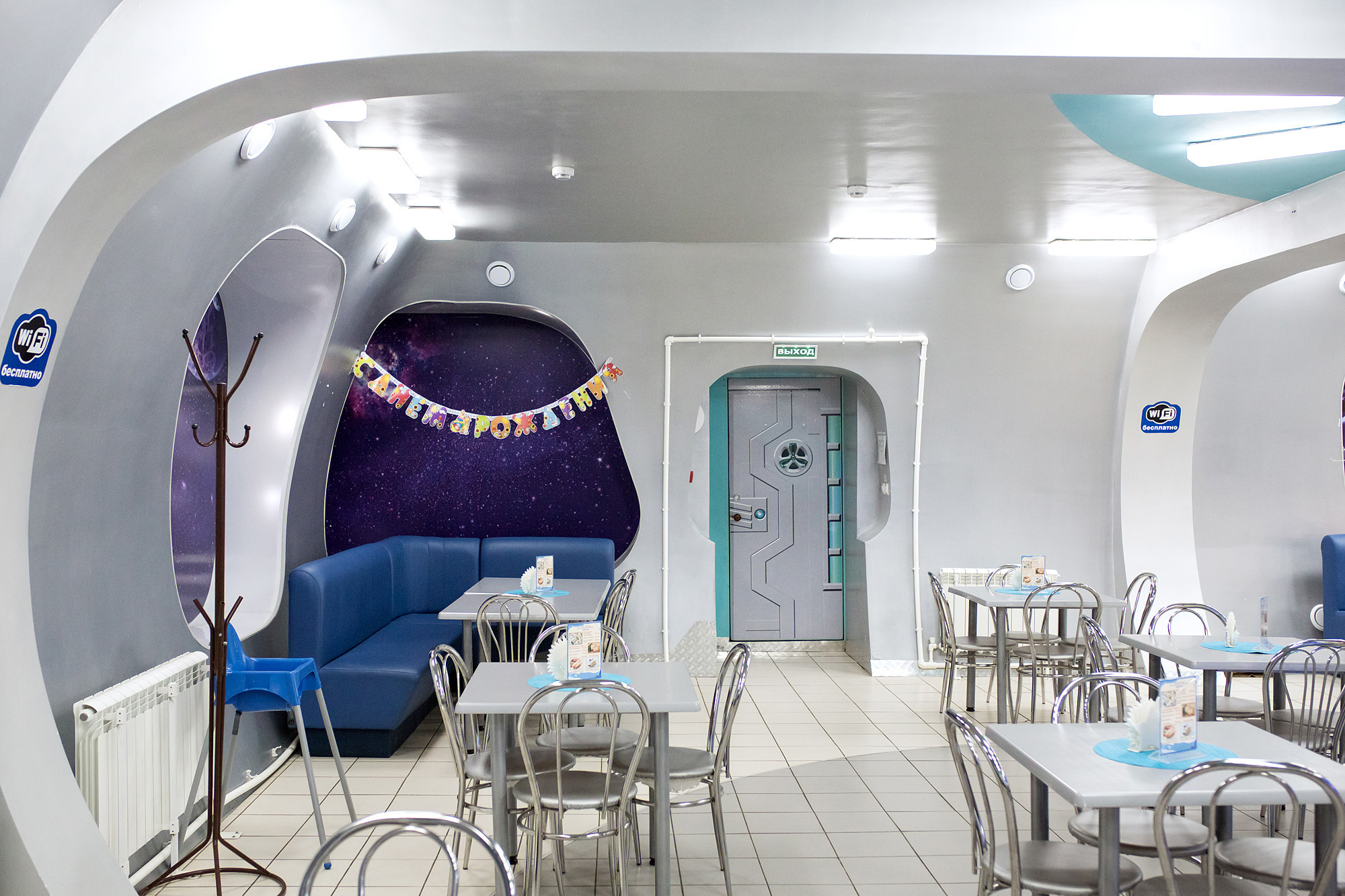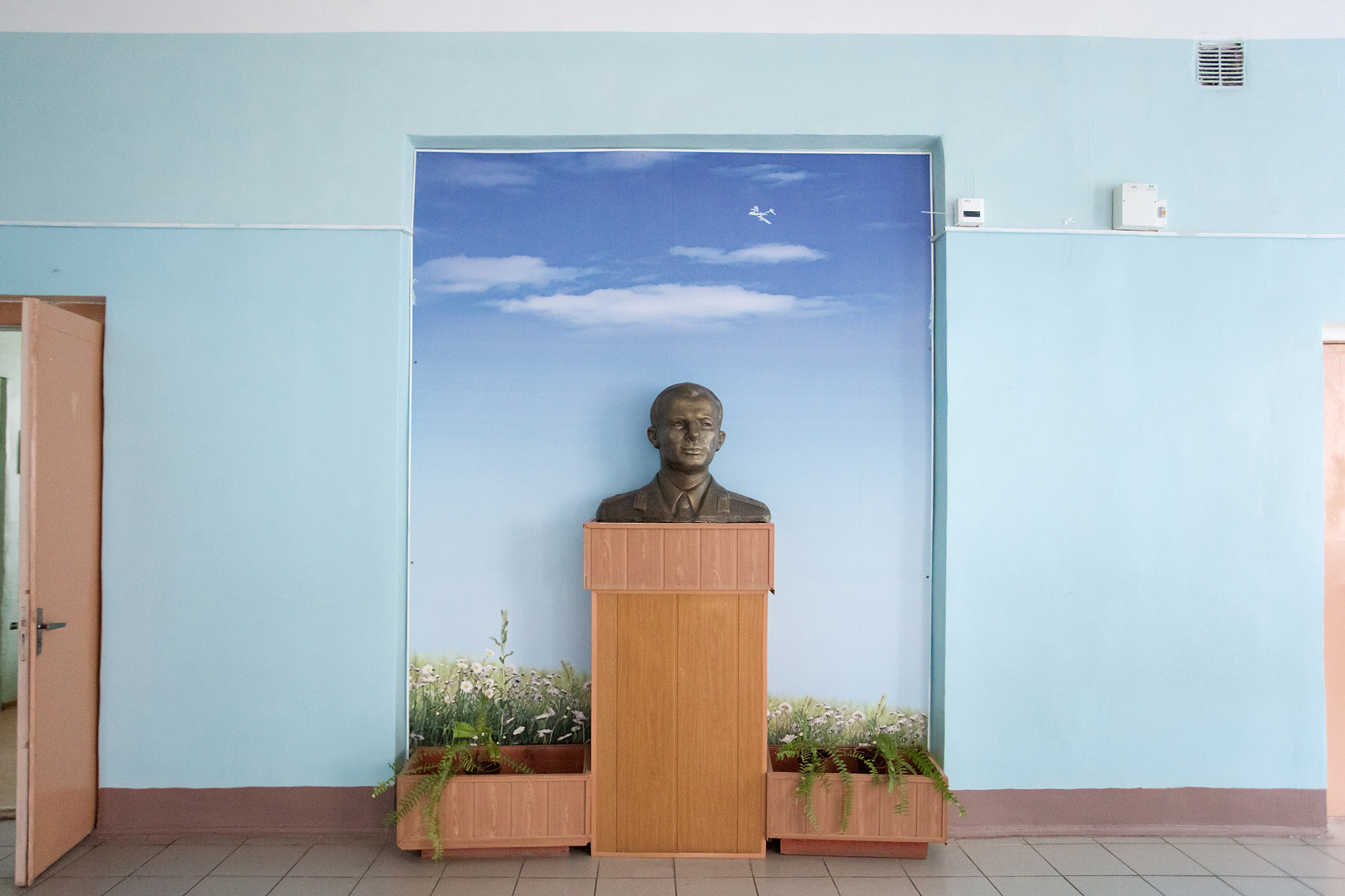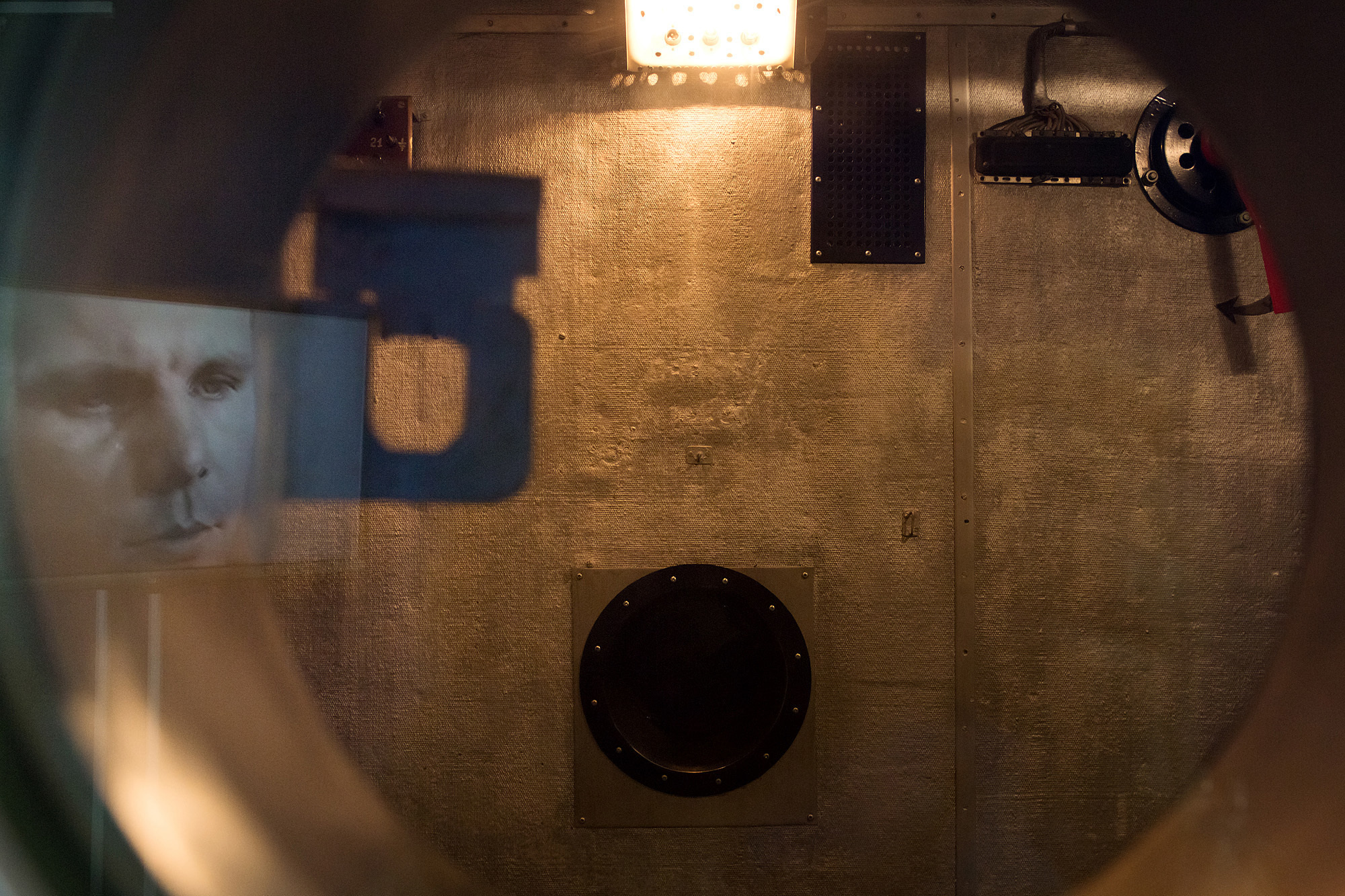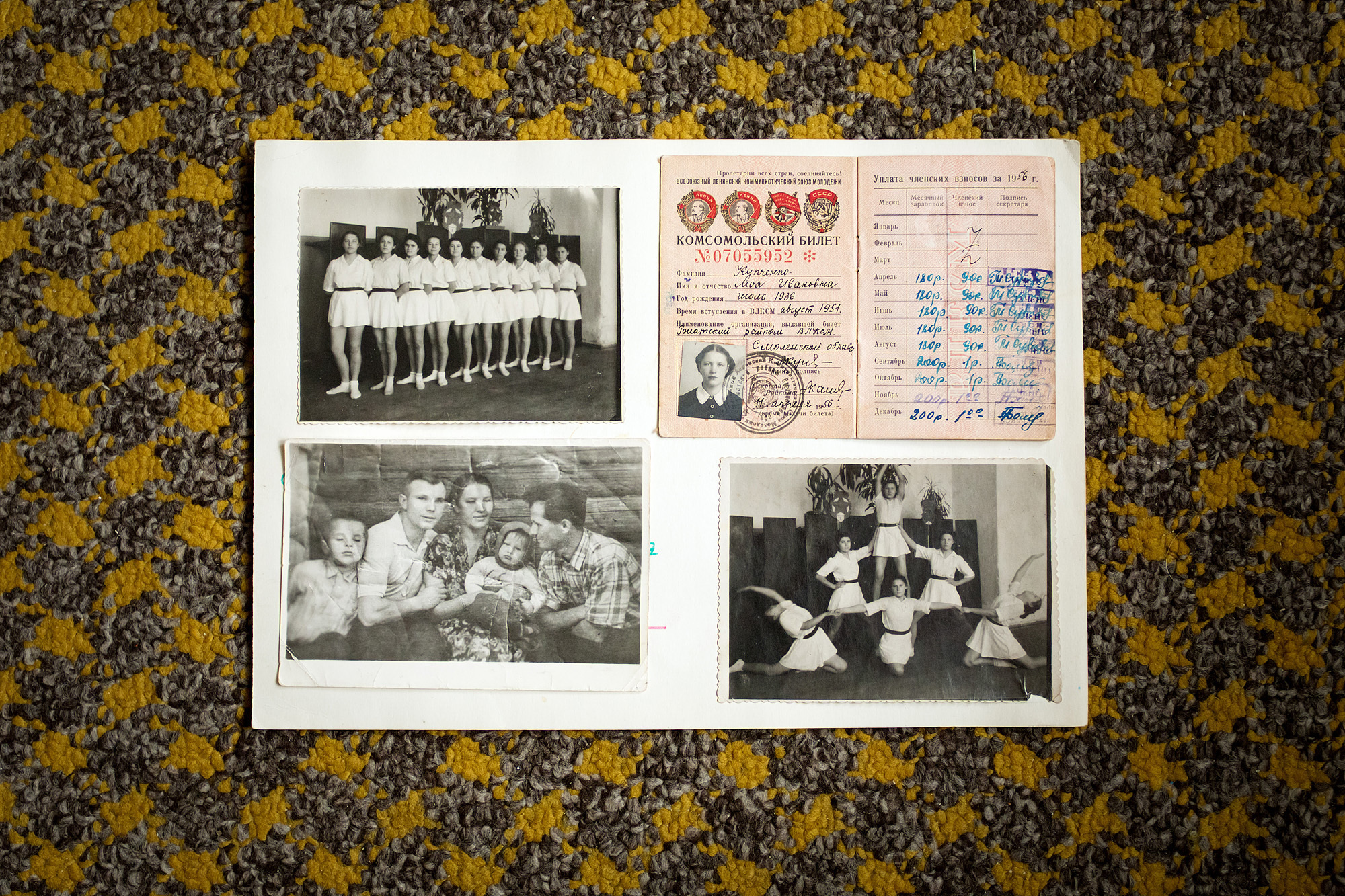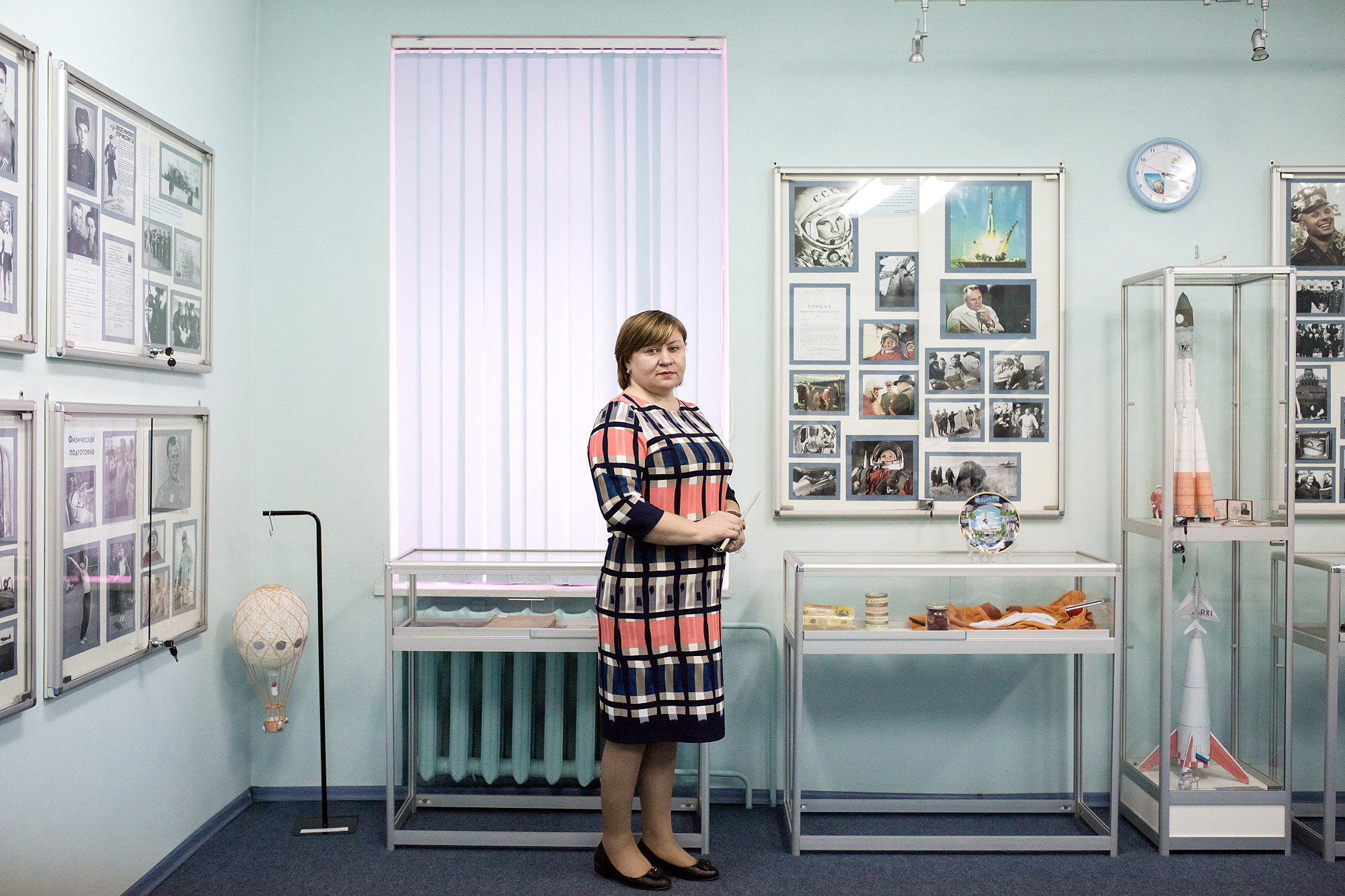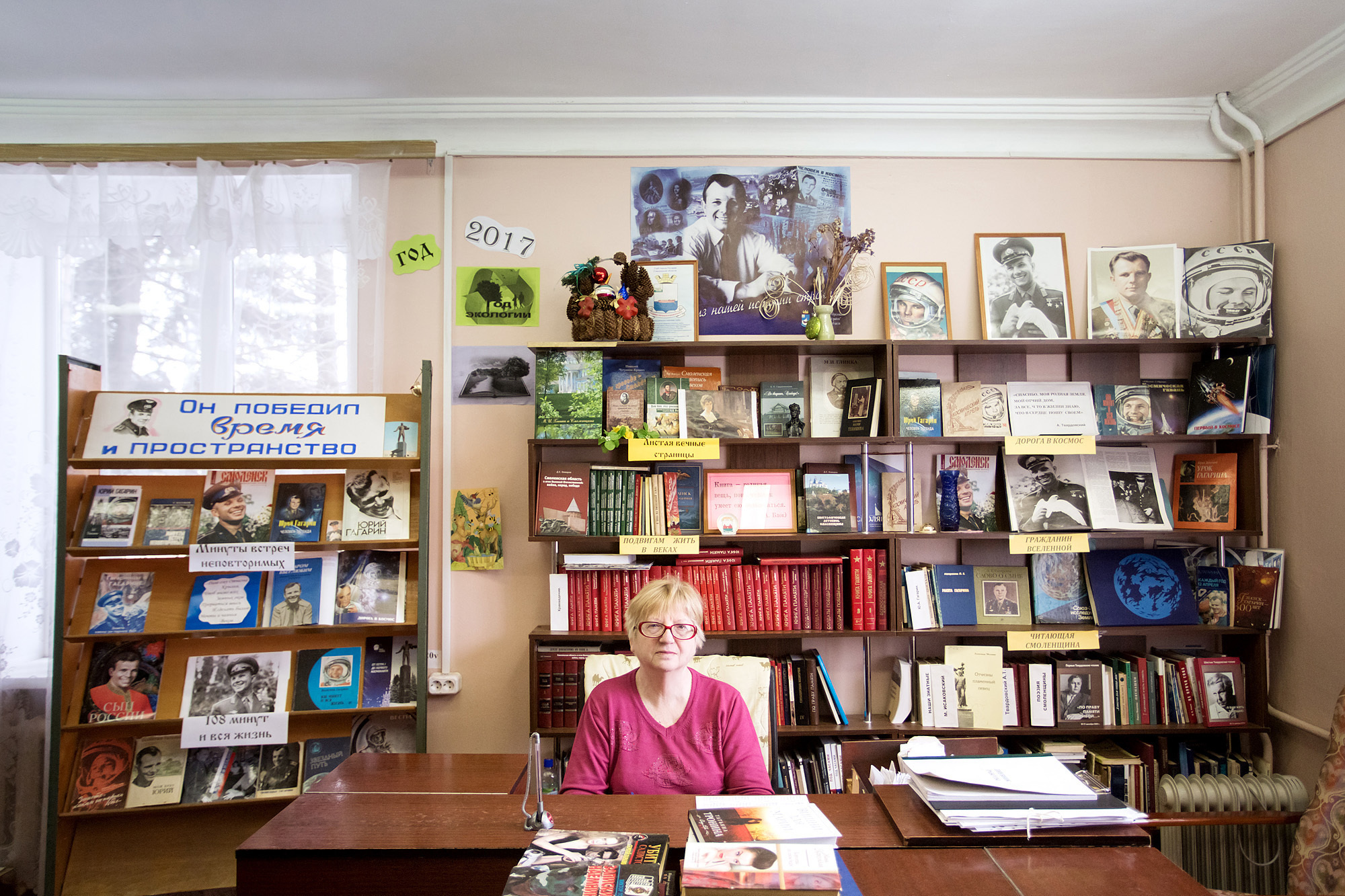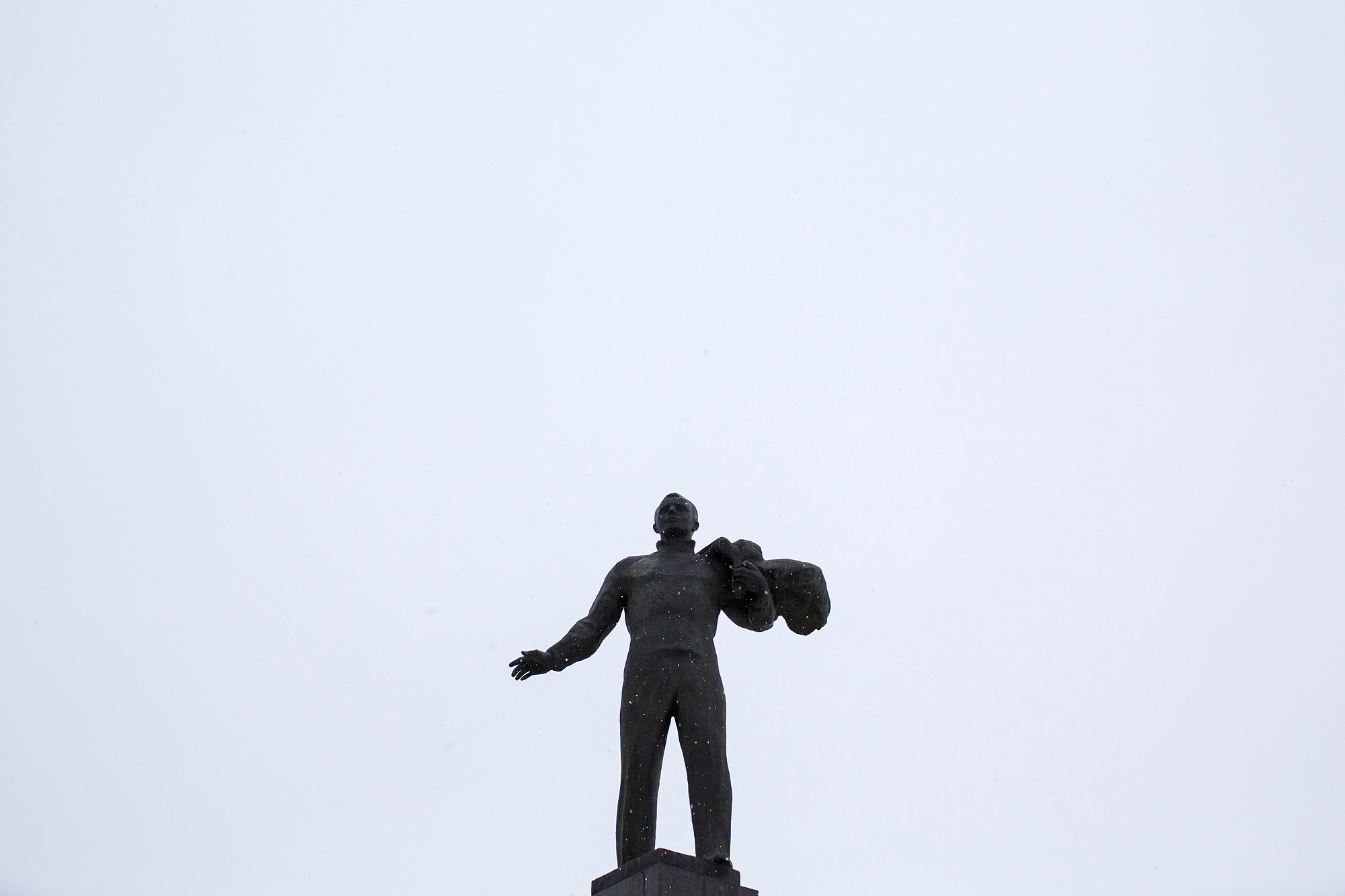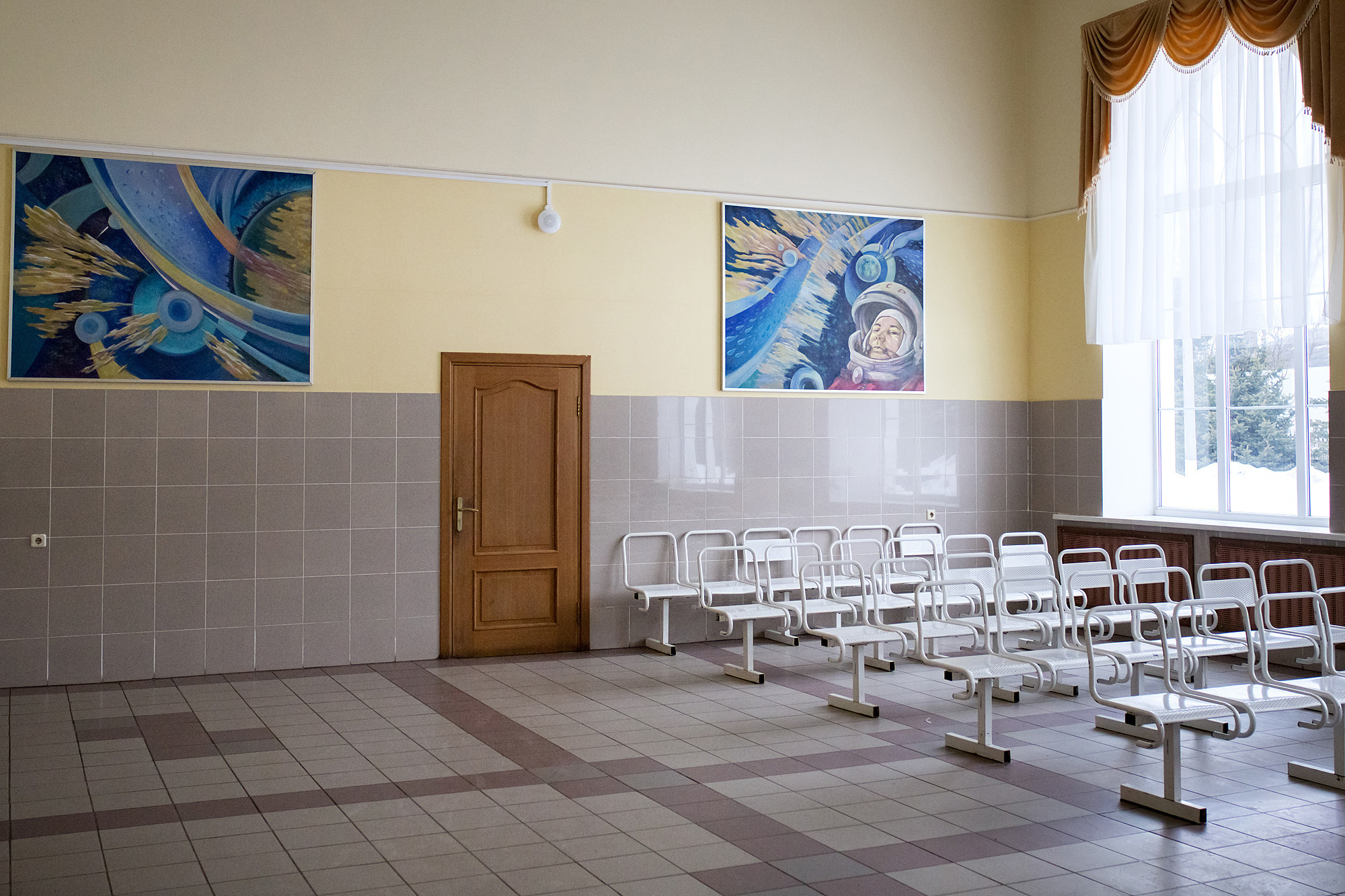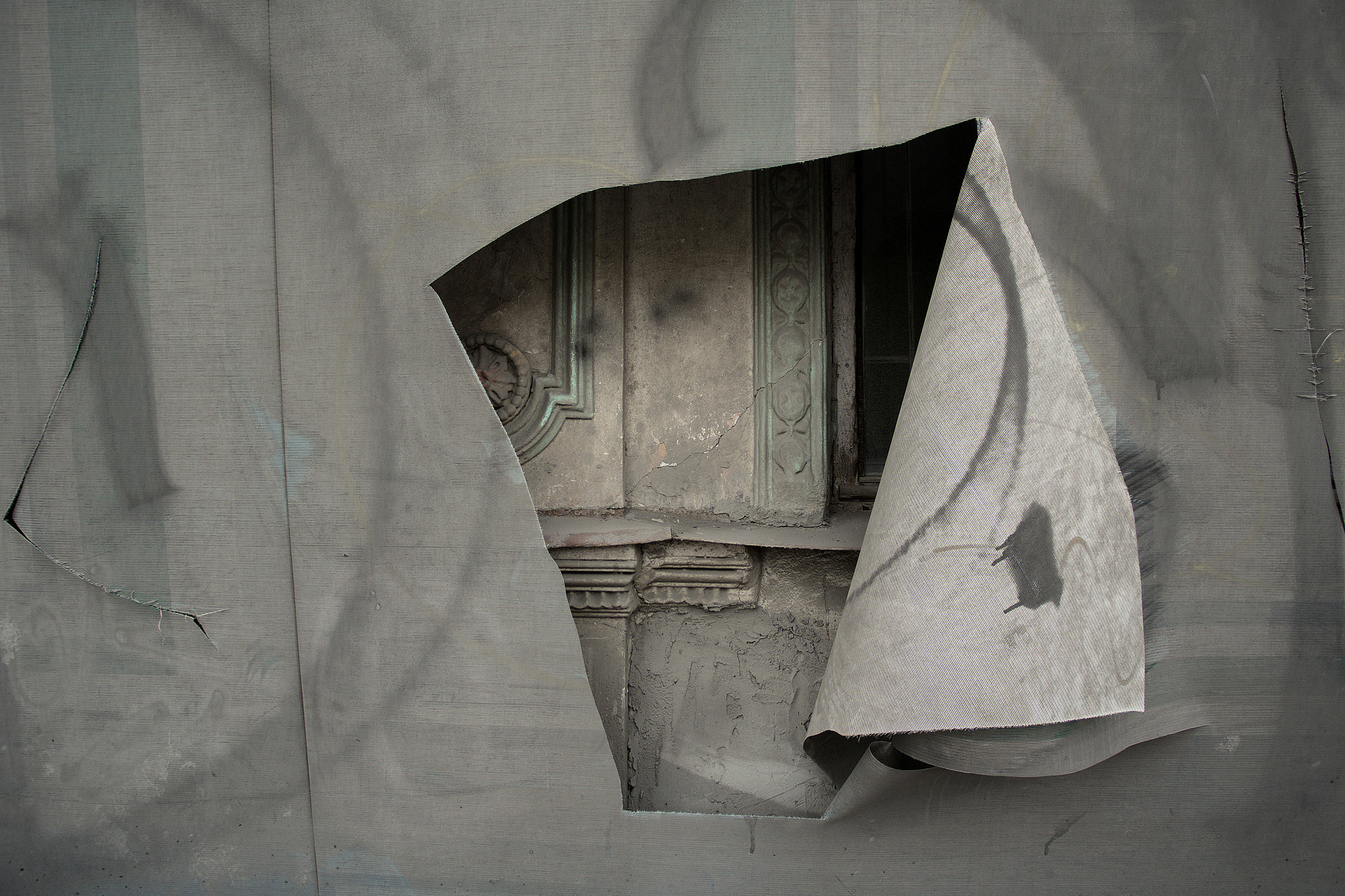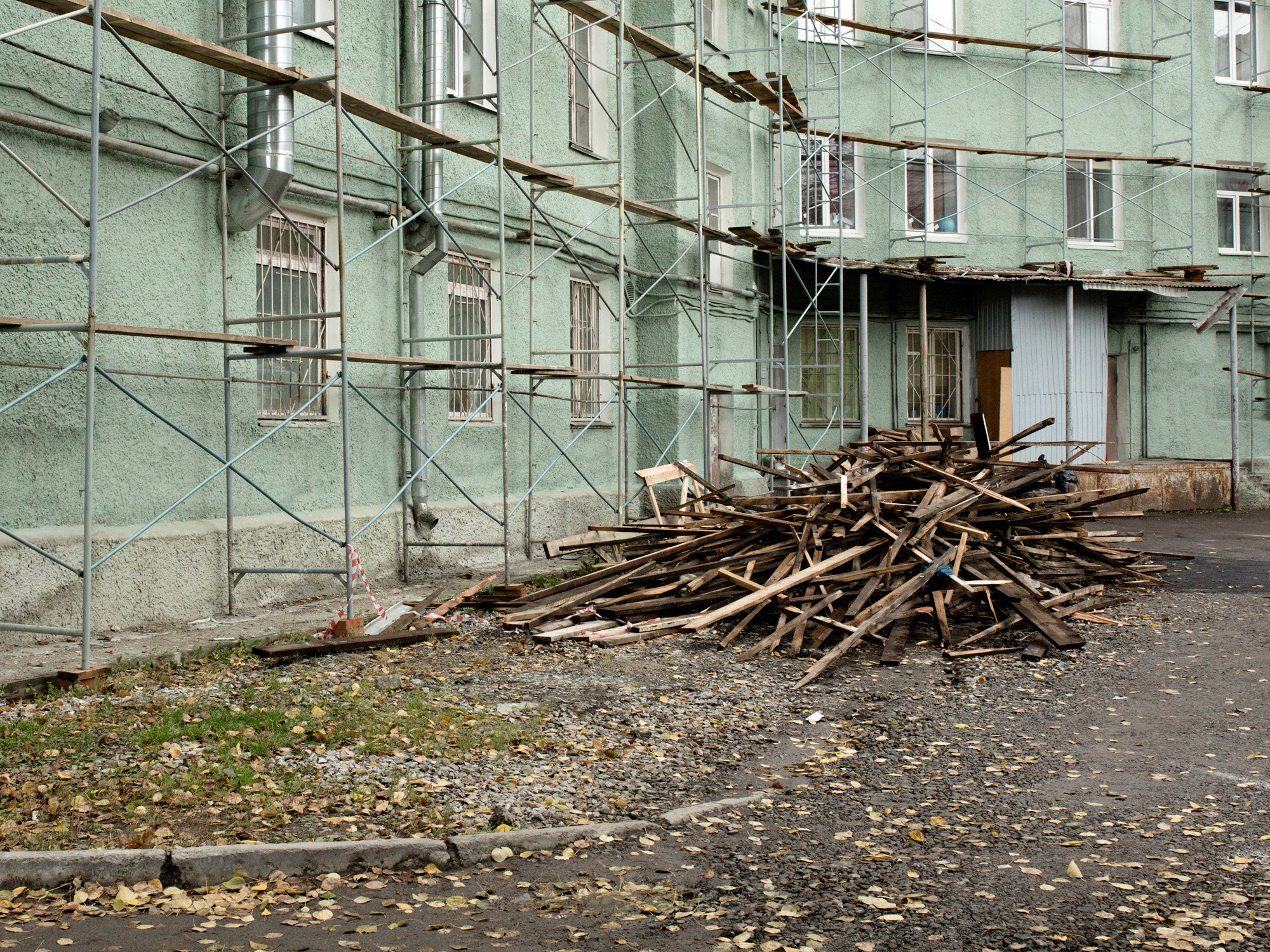The triumphal and tragically broken life of Yuri Gagarin - the first human to journey into outer space– made him the cult hero of the Soviet mythology and the central figure of scientific and atheistic propaganda of the USSR.
Space
exploration was one of the priority directions of domestic policy of
the Soviet Union and the subject of rivalry with the United States in
the Cold War. Rapid development of science and achievements in the
Space Race gave citizens of the Soviet Union the sense of pride and
greatness, feeling of omnipotence. The figure of Gagarin who was born
in an ordinary family from the Russian outback became conclusive
evidence that "everything is possible". The transpersonal
nature of consciousness of Soviet people allowed every resident of
the country to associate himself with the smiling person in the
cosmonaut's helmet and to attribute himself the cosmonaut's
achievements.
Immediately
after Gagarin's historic flight, his hometown of Gzhatsk opened a
museum in his honor, and a month later after cosmonaut's death
Gzhatsk was renamed Gagarin. Intertwining of life story of Gagarin as
a human with the atmosphere and urbanistic memory of Gagarin city
gives a surrealistic raid of the stiffened time and nostalgia to this
place.
2017 - ongoing


